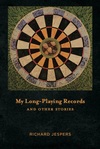A WRITER'S WIT |
My Book World
OVER THE LAST TWO MONTHS I've read and profiled two works by the late British-American author, Christopher Isherwood: his Diaries Volume One 1939-1960 and a memoir, Christopher and his Kind. I thought it would be interesting to read Isherwood’s entire oeuvre—by coordinating my reading with comments the author makes in his journals about a particular work while he is writing it—so that over the next year or so, I shall be profiling his works and sharing rationale as to why they may still be important. Later on, I'll tackle the works he wrote while keeping Volume Two of his Diaries, the same with Volume Three. Twenty works! One year. Wish me luck!

All the Conspirators is Isherwood's first novel, published when he is twenty-four in 1928, although he later reveals he’d been working on it since he was twenty-one. It is a painful read, not because he was a poor writer. It’s just that now you know he’s going to become so much better!
At first, I am confused. I can’t seem to locate any thread, any continuity holding the novel together. Then I realize, of course, however misguided the author’s purpose may be, that this may be his intention. He’s creating a narrative of a young man largely like him, chapters strung together, almost as journal entries—consisting of interior monologue, unattributed dialogue, and sections that are epistolary in nature.
The protagonist, Philip Lindsay, is in the battle of his life with a mother who has very little sympathy for his youthful desires: leaving a perfectly fine job (though he hates it) to return to the family estate and do nothing but paint and write. The novel is told alternatingly between his and three other characters. There is no central narrator or storyteller, the author asking readers to put all the elements together themselves.
Isherwood, it seems, is attempting to forge a new kind of novel, or if not, at least improve upon those that have recently come before him. He might have, at least, tried to master the traditional elements of a novel before experimenting so severely with point of view, inner monologue, and the rejection of traditional grammar, so much to the point that many times the text doesn’t make sense. The problem isn’t that Isherwood shouldn’t have attempted such a novel; it is that perhaps he could have used the steady hand of a different editor, a knowledgeable one, who would guide and advise him on how to achieve his goals.
NEXT TIME: New Yorker Fiction 2015

Date of Original Post:
11/13/14 — Introduction to My Long-Playing Records
11/20/14 — "My Long-Playing Records" — The Story
11/27/14 — "A Certain Kind of Mischief"
12/04/14 — "Ghost Riders"
12/11/14 — "The Best Mud"
12/18/14 — "Handy to Some"
12/25/14 — "Blight"
01/01/15 — "A Gambler's Debt"
01/09/15 — "Tales of the Millerettes"
01/15/15 — "Men at Sea"
01/22/15 — "Basketball Is Not a Drug"
01/29/15 — "Engineer"
02/05/15 — "Snarked"
02/12/15 — "Killing Lorenzo"
02/19/15 — "The Age I Am Now"
02/26/15 — "Bathed in Pink"
Listen to My Long-Playing Records Podcasts:
03/12/15 — "A Certain Kind of Mischief"
03/26/15 — "The Best Mud"
04/02/15 — "Handy to Some"
04/09/15 — "Tales of the Millerettes"
04/16/15 — "Men at Sea"
04/23/15 — "My Long-Playing Records"
04/30/15 — "Basketball Is Not a Drug"
05/07/15 — "Snarked"
05/21/15 — "Killing Lorenzo"
05/28/15 — "Bathed in Pink"
Also available on iTunes. Watch for more podcasts!


 RSS Feed
RSS Feed